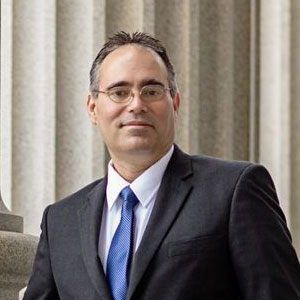Alumnus Scott Sobel Wins Big at the Australian Open’s Tennis Hackathon

Coinciding with the 2018 Australian Open, more than 750 data scientists from around the world competed in a fierce competition to develop the most accurate solution “to automate the call of forced and unforced errors in professional tennis.”
After teams and individuals submitted 2731 solutions, the win went to Northwestern SPS alumnus Scott Sobel, who developed a model with 95 percent overall accuracy. For his victory, Sobel went home with a $5,000 purse and bragging rights at Oliver Wyman Actuarial Consulting, the global risk management consulting firm where he works as a principal.
Regarding Sobel’s work, Dr. Stephanie Kovalchik, a Research Fellow at Victoria University and Tennis Australia Senior Data Scientist, told Tennis Australia, “The winning solution is a high-quality tool that could be the first major step toward automating point calls in tennis. The competition showed us the potential value of data in tennis and what amazing things can result when access is given to that data to tennis aficionados with a gift for data analysis.”
Sobel, who graduated from the Master of Science in Predictive Analytics program—now the Master's in Data Science program—in 2015, has worked as an actuary and in actuarial services consulting for his entire career. However, in the past ten years he has seen a surge in the demand for cutting-edge analytics in the insurance industry, which is part of what led him to advance his skills through the program at Northwestern.
“The master’s degree has helped launch my career to the next steps,” Sobel noted. “The program allowed me to branch off from specialized knowledge developed on the job by providing a broad, formal, analytics education needed to help me move on to better opportunities.”
While in the program, Sobel worked full-time as an actuarial consultant and completed his coursework online. He researched several programs, but chose Northwestern because of the school’s reputation, flexibility, and pioneering work in the field. Throughout his coursework, Sobel formed close connections with the faculty.
“I need to recognize Dr. Donald Wedding,” Sobel said. “I still maintain contact with him today as a mentor, because he brought so much passion and energy to his coursework. He really cares about his students. I took two courses with him and was impressed by his style of teaching and his passion for analytics.”
Sobel added, “I appreciated that the professors in the program found it important to also include courses to develop some of the soft-skills needed in an analytics leadership role, such as project management specifically tailored to running analytics projects.”
Sobel wished he could have taken more elective classes in the program, such as sports or text analytics.
“It was difficult to choose which electives to take. I wanted to take them all.”
With a lifelong passion for numbers, Sobel continues to learn emerging skills in the field and is looking forward to taking on more contests in the future. In the meantime, he’s excited to see the sport of tennis change with the help from data scientists in the coming years.
